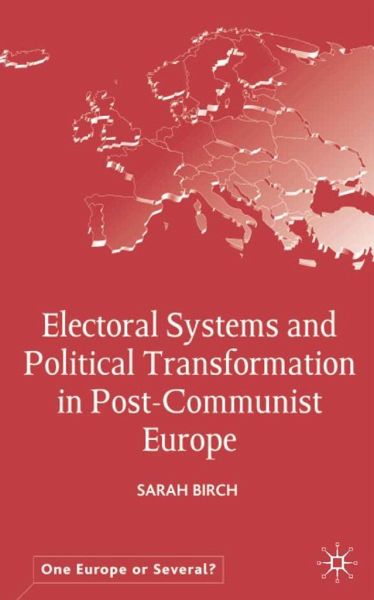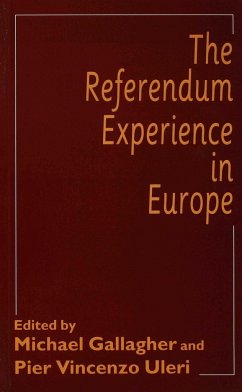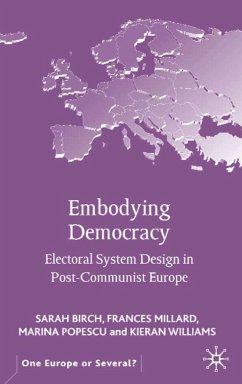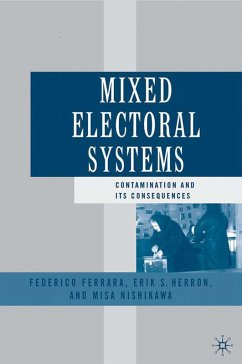
Electoral Systems and Political Transformation in Post-Communist Europe
Versandkostenfrei!
Versandfertig in 6-10 Tagen
38,99 €
inkl. MwSt.
Weitere Ausgaben:

PAYBACK Punkte
19 °P sammeln!
Electoral Systems and Political Transformation in Post-Communist Europe assesses the influence of electoral systems on political change in 20 post-communist European states. The main finding is that electoral institutions have systematic effects on the formation of representative structures. 'Party-enabling' aspects of electoral laws such as list proportional representation tend to foster popular inclusion in politics and institutionalized party systems, whereas 'politician-enabling' rules such as single-member districts and ballots that allow voters to select individuals often favour the deve...
Electoral Systems and Political Transformation in Post-Communist Europe assesses the influence of electoral systems on political change in 20 post-communist European states. The main finding is that electoral institutions have systematic effects on the formation of representative structures. 'Party-enabling' aspects of electoral laws such as list proportional representation tend to foster popular inclusion in politics and institutionalized party systems, whereas 'politician-enabling' rules such as single-member districts and ballots that allow voters to select individuals often favour the development of weakly structured systems and high levels of popular exclusion from the representative process.














